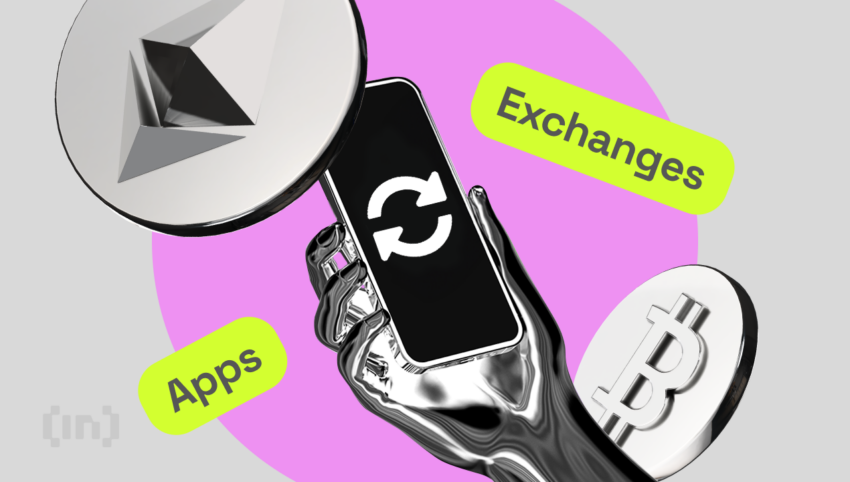Understanding and minimizing crypto exchange fees is crucial. With an overwhelming array of options, finding the crypto exchange with the lowest fees can be tough. This guide demystifies trading fees, commission rates, and the fee structures of leading platforms in 2025.
- Top crypto exchanges with the lowest fees
- 1. MEXC
- 2. Arkham Exchange
- 3. eToro
- 4. Figure Markets
- 5. OKX
- 6. Bybit
- 7. BingX
- 8. BYDFi
- 9. Binance
- 10. Kraken
- 11. Bitget
- 12. CoinEx
- Understanding crypto exchange fees
- Finding your ideal crypto trading platform
- Tips for minimizing trading fees
- What types of fees do crypto exchanges charge?
- Where can I buy crypto with the lowest fees?
- Lower trading fees equal higher profits
- Frequently asked questions
Top crypto exchanges with the lowest fees
1. MEXC
MEXC offers a reduced fee of 0% for both maker and taker trading fees on the spot market, if you’ve held a minimum of 1,000 MX tokens for the previous 15 consecutive days. For Futures, the exchange offers 0% maker fee and 0.01% taker fee or 0.009% taker fee with the MX discount.
There are three VIP levels on MEXC, which grant you access to exclusive trading fees, VIP customer service and other exclusive perks. To be granted to access to these VIP level, you must meet the following requirements:
Gold VIP: Hold minimum 300,000 USD in assets
Diamond VIP: Hold minimum 1,000,000 USD in assets
Premium VIP: Hold minimum 2,000,000 USD in assets
Arkham Exchange offers zero maker fees for both spot and perpetual trading. Taker fees start at base rates of 0.10% for spot and 0.05% for perpetuals. These can be discounted by up to 95% depending on your ARKM token holdings and 30-day trading volume.
Holding ARKM tokens doesn’t directly lower your fees, but you can earn Arkham Points through active trading and referrals. These points can later be redeemed for ARKM tokens, indirectly offsetting your overall trading costs.
Arkham offers a VIP program for influential market participants. VIP perks include higher referral commissions (up to 100%), dedicated support, priority application processing, custom Arkham merch, exclusive events, and a personalized dashboard.
Eligibility factors (meeting one or more may qualify you):
➤ Social media accounts with 5,000+ followers/subscribers (Twitter, YouTube, Debank, etc.)
➤ Community leaders with 500+ members (Telegram, Discord, Reddit, WeChat)
➤ Affiliates from prominent institutions or other top-tier programs
➤ Spot trading volume ≥ $250,000 (30-day)
➤ Perpetuals trading volume ≥ $2,500,000 (30-day)
➤ Account balance ≥ $100,000
➤ ARKM token holdings ≥ 25,000 ARKM
➤ 50 or more successful referrals
Note that meeting these criteria does not guarantee approval, as Arkham retains full discretion over VIP acceptance.
eToro offers reduced fees and benefits to eToro club members. Some of these include a dedicated customer service agent, a subscription to premium financial content, and zero withdrawal fees to name a few. Users can also earn discounts on foreign exchange conversions (for U.K. and Europe), and earn interest on their balance.
Your tier is the total amount you’ve invested in eToro, plus your available cash and the cash value in your eToro Money account.
Silver: $5,000
Gold: $10,000
Platinum: $25,000
Platinum+: $50,000
Diamond: $250,000
Don’t invest unless you’re prepared to lose all the money you invest. This is a high-risk investment and you should not expect to be protected if something goes wrong.
4. Figure Markets
There are currently no trading fees for buying or selling supported cryptocurrencies. Additionally, there are no crypto deposit or withdrawal fees. Users only pay the network or gas fees for each blockchain network.
There are no VIP user conditions or requirements for registered users; therefore, all users can benefit. This 0% fee policy is part of Figure Market’s launch promotion and may be subject to change in the future.
5. OKX
OKX offers five levels of trading fees for OKB token holders.
Lvl 1: OKB holdings <100, total assets <100,000 USD or <5,000,000 USD 30-day trading volume, trading maker fee 0.080% and 0.100% taker fee Lvl 2: OKB holdings 100 - 200, total assets <100,000 USD or <5,000,000 USD 30-day trading volume, trading maker fee 0.075% and 0.090% taker fee Lvl 3: OKB holdings 200 - 300, total assets <100,000 USD or <5,000,000 USD 30-day trading volume, trading maker fee 0.07% and 0.080% taker fee Lvl 4: OKB holdings 300 - 400, total assets <100,000 USD or <5,000,000 USD 30-day trading volume, trading maker fee 0.065% and 0.070% taker fee Lvl 5: OKB holdings <100, total assets <100,000 USD or <5,000,000 USD 30-day trading volume, trading maker fee 0.060% and 0.060% taker fee
OKX offers eight VIP levels based on total USD holdings or trading volume:
VIP 1: >100,000 USD or >5,000,000 USD 30-day trading volume, maker fee 0.045% and 0.050% taker fee
VIP 2: >500,000 USD or >10,000,000 USD 30-day trading volume, maker fee 0.040% and 0.045% taker fee
VIP 3: >2,000,000 USD or >10,000,000 USD 30-day trading volume, maker fee 0.030% and 0.040% taker fee
VIP 4: >5,000,000 USD or >100,000,000 USD 30-day trading volume, maker fee 0.020% and 0.035% taker fee
VIP 5: >10,000,000 USD or >200,000,000 USD 30-day trading volume, maker fee 0.000% and 0.030% taker fee
VIP 6: >500,000,000 USD 30-day trading volume, maker fee -0.002% and 0.025% taker fee
VIP 7: >1,000,000,000 USD 30-day trading volume, maker fee -0.005% and 0.020% taker fee
VIP 8: >5,000,000,000 USD 30-day trading volume, maker fee 0.005% and 0.015% taker fee
6. Bybit
Non-VIP users benefit from the following trading fees on Bybit:
Spot trading: 0.1% maker/taker
Perpetual & futures trading: 0.02% maker, 0.055% taker
Options trading: 0.02% maker/taker
The only reduced fees on Bybit are those for VIP traders.
There are different levels of VIP from 0 to 5, Supreme VIP, and 1 to 5 Pro levels. These levels grand different trading fees for spot, perpeftual & feature and options markets.
VIP 0: ≥ 0 USD or ≤1M/ ≤10M/ ≤5M USD 30-day spot/derivatives/options trading volume, 0.10% maker/taker; 0.0550% maker – 0.0200% taker derivatives fee, 0.0200% maker/taker options fee
VIP 1: ≥ 100,000 USD or ≥1M/≥10M/≥5M USD 30-day spot/derivatives/options trading volume, 0.080% maker- 0.0675% taker spot; 0.0400% maker – 0.0180% taker derivatives fee, 0.0200% maker – 0.0150% taker options fee
VIP 2: ≥ 250,000 USD or ≥ 2.5M/≥ 25M/≥ 10M USD 30-day spot/derivatives/options trading volume, 0.0775% maker- 0.0650% taker spot; 0.0375% maker – 0.0160% taker derivatives fee, 0.0200% maker – 0.0150% taker options fee
VIP 3: ≥ 500,000 USD or ≥ 5M/≥ 50M/≥ 15M USD 30-day spot/derivatives/options trading volume, 0.0750% maker- 0.0625% taker spot; 0.0350% maker – 0.0140% taker derivatives fee, 0.0200% maker – 0.0150% taker options fee
VIP 4: ≥ 1,000,000 USD or ≥ 10M/≥ 100M/≥ 25M USD 30-day spot/derivatives/options trading volume, 0.0600% maker- 0.0500% taker spot; 0.0320% maker – 0.0120% taker derivatives fee, 0.0180% maker – 0.0150% taker options fee
VIP 5: ≥ 2,000,000 USD or ≥25M/≥250M/≥40M USD 30-day spot/derivatives/options trading volume, 0.0500% maker- 0.0400% taker spot; 0.0320% maker – 0.0100% taker derivatives fee, 0.0150% maker – 0.0100% taker options fee
Supreme VIP: ≥50M / ≥ 500M/ ≥ 100M USD 30-day spot/derivatives/options trading volume, 0.0450% maker- 0.0300% taker spot; 0.0300% maker – 0.0000% taker derivatives fee, 0.0150% maker – 0.0020% taker options fee
Pro 1: ≥10M / ≥100M / ≥25M USD 30-day spot/derivatives/options trading volume, 0.0600% maker- 0.0500% taker spot; 0.0320% maker – 0.0100% taker derivatives fee, 0.0180% maker – 0.0150% taker options fee
Pro 2: ≥25M / ≥250M / ≥40M USD 30-day spot/derivatives/options trading volume, 0.0500% maker- 0.0400% taker spot; 0.0320% maker – 0.0050% taker derivatives fee, 0.0150% maker – 0.0100% taker options fee
Pro 3: ≥50M / ≥500M / ≥100M USD 30-day spot/derivatives/options trading volume, 0.0450% maker- 0.0300% taker spot; 0.0300% maker – 0.0000% taker derivatives fee, 0.0150% maker – 0.0020% taker options fee
Pro 4: ≥75M / ≥1,000M / ≥250M USD 30-day spot/derivatives/options trading volume, 0.0400% maker- 0.0300% taker spot; 0.0275% maker – 0.0000% taker derivatives fee, 0.0100% maker – 0.0020% taker options fee
Pro 4: ≥100M / ≥2,000M / ≥400M USD 30-day spot/derivatives/options trading volume, 0.0150% maker- 0.0050% taker spot; 0.0250% maker – 0.0000% taker derivatives fee, 0.0100% maker – 0.0000% taker options fee
7. BingX
BingX offers 0.10% trading fees for taker/maker on the spot market.
For the derivatives market, there are 0.0200% maker and 0.0500% taker fee + 0.0450% standard futures trading fee rate that applies when closing a position.
BingX offers six VIP levels for traders.
VIP 1: ≥ 1M/ ≥10M USD 30-day spot/derivatives trading volume or ≥50K USD yesterday’s asets, 0.0350% maker- 0.0600% taker spot; 0.0140% maker – 0.0400% taker derivatives fee
VIP 2: ≥ 2M/ ≥20M USD 30-day spot/derivatives trading volume or ≥200K USD yesterday’s asets, 0.0200% maker- 0.0500% taker spot; 0.0120% maker – 0.0375% taker derivatives fee
VIP 3: ≥ 4M/ ≥50M USD 30-day spot/derivatives trading volume or ≥1M USD yesterday’s asets, 0.0150% maker- 0.0450% taker spot; 0.0100% maker – 0.0350% taker derivatives fee
VIP 4: ≥ 6M/ ≥100M USD 30-day spot/derivatives trading volume or ≥2M USD yesterday’s asets, 0.0125% maker- 0.0375% taker spot; 0.0080% maker – 0.0315% taker derivatives fee
VIP 5: ≥ 8M/ ≥200M USD 30-day spot/derivatives trading volume or ≥3M USD yesterday’s asets, 0.0100% maker- 0.0325% taker spot; 0.0060% maker – 0.0300% taker derivatives fee
Supreme VIP: ≥ 15M/ ≥600M USD 30-day spot/derivatives trading volume, 0.0050% maker- 0.0200% taker spot; 0.0000% maker – 0.0280% taker derivatives fee
8. BYDFi
BYDFi offers some of the lowest trading fees without any special requirements for traders:
Spot market: 0.10% – 0.30% maker/trader fees
Derivatives market: Maker 0.02%; taker 0.06%
9. Binance
Binance offers 0% maker trading fees and standard VIP taker fees for all FDUSD pairs. The platform offers a complex trading fee structure for BNB token holders. All users are eligible to pay -25% for trading fees when paying them with BNB tokens (must hold BNB).
Regular users: < 1,000,000 USD 30-day trading volume or ≥0 BNB, 0.10% maker- 0.10% taker spot; 0.0750% maker - 0.0750% taker BNB fees.
VIP 1: ≥ 1M USD 30-day trading volume and ≥ 25 BNB, 0.0900% maker- 0.1000% taker spot; 0.0675% maker – 0.0750% taker BNB fees
VIP 2: ≥ 5M USD 30-day trading volume and ≥ 100 BNB, 0.0800% maker- 0.1000% taker spot; 0.0600% maker – 0.0750% taker BNB fees
VIP 3: ≥ 20M USD 30-day trading volume and ≥ 250 BNB, 0.0420% maker- 0.0600% taker spot; 0.0315% maker – 0.0450% taker BNB fees
VIP 4: ≥ 100M USD 30-day trading volume and ≥ 500 BNB, 0.0420% maker- 0.0540% taker spot; 0.0315% maker – 0.0405% taker BNB fees
VIP 5: ≥ 150M USD 30-day trading volume and ≥ 1,000 BNB, 0.0360% maker- 0.0480% taker spot; 0.0270% maker – 0.0360% taker BNB fees
VIP 6: ≥ 400M USD 30-day trading volume and ≥ 1,750 BNB, 0.0300% maker- 0.0420% taker spot; 0.0225% maker – 0.0315% taker BNB fees
VIP 7: ≥ 800M USD 30-day trading volume and ≥ 3,000 BNB, 0.0240% maker- 0.0360% taker spot; 0.0180% maker – 0.0270% taker BNB fees
VIP 8: ≥ 2B USD 30-day trading volume and ≥ 4,500 BNB, 0.0180% maker- 0.0300% taker spot; 0.0135% maker – 0.0225% taker BNB fees
VIP 9: ≥ 4B USD 30-day trading volume and ≥ 5,500 BNB, 0.0120% maker- 0.0240% taker spot; 0.0090% maker – 0.0180% taker BNB fees
10. Kraken
Kraken offers a trading fee structure for spot, stablecoins, pegged tokens, FX pairs, margin, and futures based on the trader’s 30-day trading volume.
Regular users (trading volume $0 – $10,000) benefit from the standard 0.25% maker and 0.40% taker trading fees on the spot market.
For the stablecoin, pegged tokens and FX pairs, for a trading volume between $0 – $50,000, traders benefit of a 0.20% maker/taker trading fee.
For margin trading, users benefit of a 0.02% opening fee and 0.02% per 4-hour rollover fee for all cryptos, except for Bitcoin, which has a 0.01% opening fee and 0.01% per 4-hour rollover fee.
For futures trading, for users who have between $0 – $100,000 30-day trading volume, the platform offers a 0.0200% maker and a 0.0500% taker fee.
Lvl 1: trading volume between $10,001 – $50,000, 0.20% maker fee, 0.35% taker fee for spot
Lvl 2: trading volume between $50,001 – $100,000, 0.14% maker fee, 0.24% taker fee for spot
Lvl 3: trading volume between $100,001 – $250,000, 0.12% maker fee, 0.22% taker fee for spot
Lvl 4: trading volume between $250,001 – $500,000, 0.10% maker fee, 0.20% taker fee for spot
Lvl 5: trading volume between $500,001 – $1,000,000, 0.08% maker fee, 0.18% taker fee for spot
Lvl 6: trading volume between $1,000,001 – $2,500,000, 0.06% maker fee, 0.16% taker fee for spot
Lvl 7: trading volume between $2,500,001 – $5,000,000, 0.04% maker fee, 0.14% taker fee for spot
Lvl 8: trading volume between $5,000,001 – $10,000,000, 0.02% maker fee, 0.12% taker fee for spot
Lvl 9: trading volume between $10,000,000+, 0.00% maker fee, 0.10% taker fee for spot
11. Bitget
Bitget traders benefit from a 20% trading fee reduction when paying fees with BGB tokens (you need to hold them in your account).
Regular users: 0.1000% maker- 0.1000% taker spot; 0.0800% maker – 0.0800% taker BGB fees, Derivatives 0.020% maker, 0.060% taker.
VIP 1: ≥ 1M USD 30-day spot trading volume, and $50K USD assets or >100,000 BGB tokens, 0.0400% maker- 0.0600% taker spot; 0.0320% maker – 0.0480% taker BGB fees
VIP 2: ≥ 2M USD 30-day spot trading volume, and $500K USD assets or >1,000,000 BGB tokens, 0.0250% maker- 0.0500% taker spot; 0.0200% maker – 0.0400% taker BGB fees
VIP 3: ≥ 3M USD 30-day spot trading volume, and $1M USD assets or >2,000,000 BGB tokens, 0.0200% maker- 0.0450% taker spot; 0.0160% maker – 0.0360% taker BGB fees
VIP 4: ≥ 5M USD 30-day spot trading volume, and $2M USD assets or >4,000,000 BGB tokens, 0.0150% maker- 0.0400% taker spot; 0.0120% maker – 0.0320% taker BGB fees
VIP 5: ≥ 8M USD 30-day spot trading volume, and $3M USD assets or >8,000,000 BGB tokens, 0.0125% maker- 0.035% taker spot; 0.010% maker – 0.028% taker BGB fees
12. CoinEx
CoinEx traders benefit from reduced trading fees by holding and paying for fees with CET token. If a trader holds CET tokens, he will pay -20% on fees. On the basic lavel that is a reduction from 0.20% to 0.16% on the spot market.
CoinEx offers five VIP level, which require a different level of CET holdings, spot and futures trading volume and total assets value.
VIP 1: ≥ 10K / ≥50K USD 30-day spot/futures trading volume, and $10K USD assets or ≥2,000 CET tokens, 0.1440% maker/ taker spot; 0.0280% maker – 0.0480% taker futures fees
VIP 2: ≥ 50K / ≥250K USD 30-day spot/futures trading volume, and $50K USD assets or ≥10,000 CET tokens, 0.1280% maker/ taker spot; 0.0260% maker – 0.0460% taker futures fees
VIP 3: ≥ 100K / ≥500K USD 30-day spot/futures trading volume, and $100K USD assets or ≥50,000 CET tokens, 0.1120% maker/ taker spot; 0.0240% maker – 0.0440% taker futures fees
VIP 4: ≥ 200K / ≥1M USD 30-day spot/futures trading volume, and $200K USD assets or ≥250,000 CET tokens, 0.0960% maker/ taker spot; 0.0220% maker – 0.0420% taker futures fees
VIP 5: ≥ 500K / ≥2.5M USD 30-day spot/futures trading volume, and $500K USD assets or ≥1M CET tokens, 0.0800% maker/ taker spot; 0.0200% maker – 0.0400% taker futures fees
Understanding crypto exchange fees
Understanding the fee structure of the crypto platform you choose to trade on is crucial. These charges, often referred to as crypto exchange fees, play a significant role in your trading experience and profitability.
What are trading fees?
Trading fees are essentially the cost cryptocurrency exchanges charge for facilitating buy and sell orders on their platforms. These fees can vary significantly between exchanges, making the search for a crypto exchange with the lowest fees a vital step for traders aiming to maximize their earnings.
Fee structures can include various types of charges, such as spot trading fees, withdrawal fees, and even specific costs for using services like API trading or margin trading.
Notably, some platforms have started offering no-fee crypto trading for certain types of transactions, which is a game-changer for cost-conscious traders.
Difference between maker and taker fees
A critical component of trading fees that often puzzles newcomers is the distinction between maker and taker fees. Maker fees apply when you add liquidity to the market, typically by placing a limit order that doesn’t fill immediately.
Taker fees, on the other hand, are charged when you remove liquidity from the market, usually by fulfilling an existing order. This distinction incentivizes traders to add liquidity, thereby ensuring a more stable and efficient market.
How trading fees influence your investment returns
High commission rates and trading fees can significantly affect your earnings, especially if you are a frequent trader. This makes pursuing low-fee crypto exchanges a preference and a necessity for profitability. For instance, spot trading fees applied to immediate buy or sell orders can vary widely between platforms.
Other charges like withdrawal fees, fiat-to-crypto fees, and crypto-to-crypto fees add up, affecting your overall return on investment. The quest for the cheapest crypto exchange is not just about the numbers; it’s about understanding the entire fee ecosystem, including hidden costs like gas fees associated with the blockchain technology underlying these transactions.
Exchanges like Binance, MEXC, and Kraken offer competitive fees. Still, it’s crucial to delve into the specifics of their fee structures to determine which truly offers the lowest costs for your trading strategy.
Finding your ideal crypto trading platform
Selecting the ideal crypto exchange requires careful consideration of several key aspects. Here’s a more detailed guide to help you choose one that fits your needs:
Security measures
Look for exchanges that prioritize your safety with robust security features. These should include two-factor authentication (2FA), which adds an extra layer of security to your account login process. Encryption of your data helps protect your privacy, while cold storage of assets means most funds are kept offline, away from potential online threats.
Available cryptocurrencies

The variety of cryptocurrencies available for trading can vary widely from one exchange to another. While some platforms boast a broad selection of digital currencies, others focus on a more limited set.
Consider what you’re interested in buying, selling, or trading. If you want to explore beyond the most popular coins like Bitcoin and Ethereum, find an exchange offering a wide range of altcoins. This ensures you have the flexibility to diversify your portfolio or explore new investment opportunities as they arise.
For instance, Kraken offers about 250+ cryptos, while Bybit offers over 590+ cryptocurrencies. If trading diverse altcoins is on your agenda, check out some of the best exchanges to trade altcoins.
Customer support
Effective customer support can significantly enhance your trading experience. It’s important to choose an exchange that is responsive and accessible when you need assistance. Look for platforms that offer multiple support channels, such as live chat, email, and phone support.
Quick response times and the availability of helpful resources, like FAQs or tutorial videos, can also be a good indicator of a platform’s dedication to its users. An exchange with reliable customer support ensures that help is available whenever you encounter any issues or have questions.
Ease of use
An exchange’s user interface and overall user experience are crucial, especially for beginners.
Some exchanges also offer features like mobile apps, which allow you to trade and monitor your investments. Consider starting with a platform known for its user-friendly interface, whether you’re new to crypto trading or prefer a straightforward and efficient trading environment.
Tips for minimizing trading fees
Minimizing trading fees is essential for maximizing your returns in cryptocurrency trading. With a strategic approach, you can significantly reduce the costs associated with your transactions. Here are some tips to help you keep fees to a minimum.
Use exchange tokens for discounts
Many cryptocurrency exchanges offer native tokens, which you can use to get discounts on trading fees. You can enjoy reduced costs by holding these tokens in your account and using them to pay for expenses. This method is particularly effective on platforms like Binance, known for its Binance Coin (BNB), which allows users to access lower commission rates. But today, many exchanges offer such coins for an extra discount on trading fees.
It’s smart for regular traders to invest in these tokens, as the savings can be significant over time, making it a staple strategy for anyone looking to trade on the cheapest crypto exchange possible.
Opting for limit orders over market orders
The type of order you place can also impact your trading fees. Limit orders, where you specify the price you’re willing to buy or sell a cryptocurrency, often come with lower fees than market orders, where you buy or sell immediately at the current market price.
This is because limit orders add liquidity to the market, which exchanges value. By choosing limit orders, you gain more control over your trading prices and take advantage of lower maker fees than taker fees associated with market orders. This approach benefits those meticulously managing their trading expenses, especially on platforms with distinct maker-and-taker fee structures.
Taking advantage of fee-tier systems

Many crypto exchanges with the lowest fees implement fee-tier systems based on your trading volume or account balance. The more you trade or the higher your account balance, the lower your costs can be. This incentivizes traders to consolidate their trades on one platform to enjoy reduced commission rates.
By understanding and leveraging these tiered fee structures, you can significantly decrease your spending on spot trading, maker and taker, and withdrawal fees. It’s worth reviewing the fee structures of different crypto exchanges to identify which ones offer the most favorable conditions for your trading habits.
Incorporating these strategies can lead to substantial savings on trading fees over time. Whether through the strategic use of exchange tokens, opting for limit orders, or taking advantage of fee-tier systems, each method offers a pathway to more cost-effective trading.
What types of fees do crypto exchanges charge?
Crypto exchanges can charge a variety of fees for the services they provide. Here’s a breakdown of the common types of fees you may encounter:
Trading fees
These are the fees you pay for each trade you make on an exchange. Trading fees can be divided into two categories: maker and taker fees. Maker fees apply when you add liquidity to the market (e.g., placing a limit order), while taker fees are charged when you take liquidity away (e.g., fulfilling an existing order).
Withdrawal fees
When you want to withdraw your crypto from the exchange to your own crypto wallet, you may be charged a withdrawal fee. This fee varies depending on the blockchain network’s congestion and the cryptocurrency you are withdrawing.
Deposit fees
Some exchanges charge fees for depositing funds or cryptocurrencies. However, many crypto exchanges with the lowest fees do not charge for deposits to encourage more transactions on their platform.
Spot trading fees
For immediate buy or sell orders, spot trading fees are applied. These are a subset of trading fees and are common on exchanges that offer spot trading options.
Margin trading fees
If you engage in margin trading, where you borrow funds to trade, you will incur margin trading fees. These fees can include interest on the borrowed funds.
Fiat to crypto fees
When converting fiat currency (USD or EUR) to cryptocurrency, exchanges may charge a fee for this service. However, most platforms will charge a fee of around 0.05% conversion rate for this transfer. The rates can vary across platforms.
Crypto to crypto fees
Exchanging one cryptocurrency for another also incurs fees, often part of the trading fees but sometimes listed separately by some exchanges. If you’re looking for the absolute cheapest trading fees, look out for the occasional promos, as some exchanges might drop fees to 0% for specific crypto pairs.
API trading fees
Traders using automated strategies via APIs might be subject to API trading fees, depending on the volume and type of transactions.
No-fee crypto trading
Some platforms offer no-fee trading for specific pairs or actions as a way to attract users. This usually applies to certain conditions or promotional periods. Given that trading fees are usually a percentage of your trade, this can be a great way to save funds on bigger trades.
Gas fees
Not directly a fee charged by exchanges, but when moving assets across blockchain networks, you pay gas fees. This is a fee you will have to pay when moving funds to and from your crypto wallet. The gas fee compensates for the computing energy required to process and validate transactions on the blockchain.
Where can I buy crypto with the lowest fees?

Using the platforms mentioned above will guarantee you benefit from the lowest crypto exchange fees on the market. These commission rates are some of the lowest you will find on any exchange.
However, investigate the entire trading fee structure before settling for one or a couple of exchanges with the lowest fees. Some exchanges offer more advantageous spot trading fees, while others are better suited for derivatives or margin trading fees. It’s all about your trading strategy and how you intend to use the platform. For some traders, it’s not about the fee structure but the withdrawal fees.
However, the most important thing is to define the list of cryptocurrencies you want to trade. Not all cryptos are available on all trading platforms. And it may be possible that only some cryptos have the same trading fee, even on the same platform. Traders are responsible for researching and understanding the fees they must pay.
Lower trading fees equal higher profits
Successfully navigating crypto trading requires a deep understanding of the various fees — from trading to withdrawal — that exchanges impose and how these costs impact your trading activities. Choosing platforms that offer low fees and transparent pricing is crucial for maximizing gains in the dynamic crypto market.
Additionally, it’s important to assess each exchange’s security features, variety of cryptocurrencies, quality of customer service, and user-friendliness. A careful examination and selection based on these criteria will ensure a safer and more satisfying trading journey. With the fee structures outlined in this guide, you’re better equipped to choose an exchange that fits your financial goals, leading to a more cost-effective and profitable trading experience.
Frequently asked questions
Maker fees apply when you place a trade that doesn’t immediately match an existing order, adding liquidity to the market. In contrast, taker fees occur when your trade order is matched immediately, removing liquidity. Makers typically pay lower fees than takers because they help to build the market depth. This distinction incentivizes traders to add to the order book, creating a more liquid and stable market.
Identifying the crypto exchange with the absolute lowest fees depends on various factors, including trading volume, the type of trade, and whether you’re using exchange tokens for discounts. However, OKX and MEXC are often recognized for their competitive fee structures among global platforms. Considering both trading and non-trading fees (like withdrawal fees) is crucial when evaluating the overall cost.
Determining the best U.S. crypto exchange depends on individual needs, including the importance of fees, security, available cryptocurrencies, and user experience. Coinbase is renowned for its user-friendly platform and robust security, making it a top choice for beginners and experienced traders. However, Kraken and Binance.US also offer compelling options with competitive fees and a broad selection of cryptocurrencies.
Binance, as an international exchange, faces restrictions in the U.S., leading to the creation of Binance.US to comply with U.S. regulations. Binance.US is legal and offers a tailored selection of services and cryptocurrencies that meet U.S. regulatory standards. However, it operates separately from Binance and has different features and fee structures.
Disclaimer
In line with the Trust Project guidelines, the educational content on this website is offered in good faith and for general information purposes only. BeInCrypto prioritizes providing high-quality information, taking the time to research and create informative content for readers. While partners may reward the company with commissions for placements in articles, these commissions do not influence the unbiased, honest, and helpful content creation process. Any action taken by the reader based on this information is strictly at their own risk. Please note that our Terms and Conditions, Privacy Policy, and Disclaimers have been updated.

















